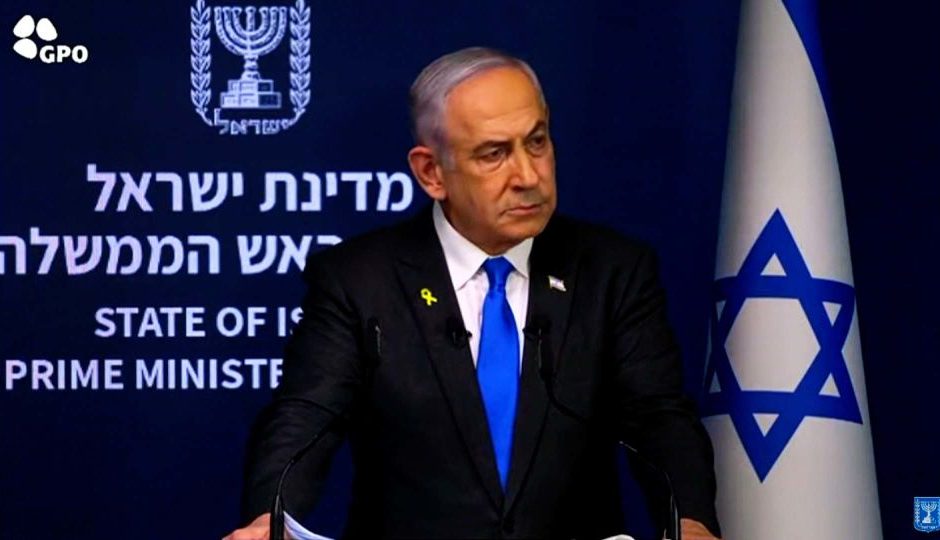For months, the United States has chased a mirage — a deal to free hostages in Gaza, to end the agony of Palestinian civilians there and to pause the fighting between Israel and Hamas.
But its goal has never looked more remote, and the Biden administration has rarely been more estranged from Prime Minister Benjamin Netanyahu since the October 7 Hamas terror attacks and the start of the Israeli onslaught on Gaza.
When an administration repeatedly predicts a foreign policy goal is in sight but fails to deliver, as this one has, it risks shattering its credibility and looks like it’s botched one of its top priorities. Politically damaging scrutiny is inevitable over why the Biden administration squandered capital on an apparently hopeless goal and how it misjudged the situation so badly.
President Joe Biden’s team faces all these negative consequences and its exposure is especially acute because it now appears to be operating in a different reality from Netanyahu. Washington argues that a deal is nine-tenths of the way to completion after diplomacy involving the US and Qatar, while the Israeli leader denies it’s anywhere near close.
Why the US can’t walk away
The motivations that led the administration into this vicious circle of failure haven’t changed. So Washington can’t give up. Biden is under even greater pressure to secure the release of Americans believed to be held in Gaza following Hamas’ murder of Hersh Goldberg-Polin, a US-Israeli citizen among six hostages whose bodies were found Sunday. For instance, even a tiny chance of a deal, which could spare other hostages, would have huge human consequences.
The administration’s fervent desire to prevent a spillover regional conflict also means that ending the war remains imperative. The White House has political as well as humanitarian motives in ending the slaughter of Palestinian civilians. Anger over those casualties, especially among progressives and Arab American voters this fall, could threaten the election hopes of Vice President Kamala Harris in the key swing state of Michigan, for instance.
Biden’s decision to end his reelection bid introduced a new and personal dimension of the Middle East crisis for the president. If no ceasefire takes hold in the next few months, he’d face the prospect of handing his successor a failure that would help shape his legacy.
One top Democrat close to the White House told CNN’s MJ Lee that Biden had redoubled his focus on the Middle East since shelving his campaign and was “obsessed” with the issue. US officials are not yet at the point of acknowledging there may be no deal before the president leaves office. But the top Democrat said: “We’re stuck,” adding that “both parties are very dug in.”
Despite its frustration, the White House has not yet used all possible leverage on Netanyahu – and probably won’t.
Biden is a deeply pro-Israel president and has so far been unwilling to bow to progressive demands to restrict US arms sales to Israel to force Netanyahu’s hand. And the prospect of the US walking away from Israel and publicly blaming the impasse on an Israeli prime minister — in a way that would open it to accusations of siding with terrorists — still seems unthinkable. The fraught political circumstances are also one reason why, despite Harris’ willingness to use stiffer rhetoric toward Netanyahu, it’s hard to see her engineering a breach with Israel as one of her first major foreign policy moves if she becomes president.
Netanyahu plays politics at home and in the US
The showdown between Israel and Hamas is so complex because of the historical, ideological and political factors swirling around the negotiations.
Both sides believe they are in an existential battle against the other. Each might believe they are winning and so they don’t want to back down. Meanwhile, the outside political factors that could force their hands have not yet reached a critical point, and third powers have been unable to create that pressure. The incentives for Netanyahu and Hamas leader Yahya Sinwar, as horrific as those calculations may be, currently lean toward not ending the war.
Bad feeling between Washington and the Israeli government spilled over when Biden on Monday said Netanyahu was not doing enough to secure the release of the hostages and after a senior administration official said later this week that 90% of an agreement had been completed. This was seen by the White House’s Republican critics as an unacceptable attempt to build pressure on Israel.
Netanyahu’s latest justification for not doing a deal center on his refusal to pull troops out of land in southern Gaza known as the Philadelphi Corridor, which he says is critical to Hamas’ capacity to maintain its arms supplies.
But more broadly, he says that US perceptions that a deal is near are false. “It’s exactly inaccurate. There’s a story, a narrative out there, that there’s a deal out there, that’s just a false narrative,” Netanyahu said on Fox News Thursday. He insisted that Israel had agreed to several proposed deals but that Hamas was the obstacle. “They don’t agree to anything: Not to the Philadelphi Corridor, not to the keys of exchanging hostages for jailed terrorists, not to anything.” (Reports this summer said Netanyahu also scuppered earlier deals).
His appearance on Fox demonstrated Netanyahu’s long penchant for playing in US domestic politics to pressure the Biden administration at a time when Republican nominee Donald Trump is blaming Harris for the death of the hostages. There are suspicions among many Democrats that Netanyahu is prolonging the war in the hope that Trump — who delivered almost everything he wanted in his first term — could soon be back in the Oval Office.
Disagreements rumbled on between the US and Israel Thursday. White House national security communications adviser John Kirby insisted it was sound to say 90% of a deal between Israel and Hamas, brokered by the US and Arab states, was done. “You call that optimistic, I call that accurate,” he said.
The US and Netanyahu’s positions are not necessarily contradictory. It’s possible for most of an agreement to be accepted and only 10% of sticking points to remain. There are familiar echoes here: The parameters of a US-Israeli final status deal on statehood have long been known — at least until recent bursts of settlement building in the West Bank — but there has never been the political will between credible leaders on both sides to make the extraordinarily hard political decisions to solve outstanding questions. And even if a deal is agreed in the Middle East, the implementation can be even more problematic that the negotiation.
Sinwar and Netanyahu have other motivations
But the prospects that this agreement could finally get over the line still seem grim.
Netanyahu has left no doubt that he sees the war against Hamas as part of a wider struggle against Iran and its proxies that is existential to the state of Israel and the Jewish people – a position that means he’s considering far more than push for a deal with Hamas.
While he has come under extreme political pressure from families of remaining Israeli hostages to do more to get them out — notably in the resumption of street protests in recent days — the opposition to his continued premiership has not reached a critical mass necessary to topple him.
Many analysts believe Netanyahu wants the war to continue to put off the inevitable inquests on how the worst terror attack in Israel’s history took place on his watch. And Netanyahu would be more vulnerable to fraud and bribery charges and trials that he’s facing if he’s out of office. And his ruling coalition — the most right-wing in Israeli history – has held up, raising questions about whether the Biden administration properly assessed his prospects for survival and the possibilities of what is politically realistic.
Aaron David Miller, a former US Middle East peace negotiator, told Jim Sciutto on CNN Max on Wednesday that the key number in Netanyahu’s mind was not the tens of thousands of Israelis protesting him on the streets — but 64. “That’s the number of seats that his coalition controls and there is absolutely no indication on the part of any of the parties that they have any stake in fracturing that coalition,” Miller said. “The reality is that there is no urgency on the part of Benjamin Netanyahu or Yahya Sinwar to either let those hostages go or to redeem them through a negotiation.”
In an odd way, Netanyahu and Sinwar’s situations are reinforcing the deadlock. The killing of the hostages bolsters Netanyahu’s narrative that it’s impossible to negotiate with Hamas. But the consequential public protests in Israel build the political pressure on Netanyahu that Sinwar wants to see.
And the Hamas leader has shown no sign that he’s motivated by a desire to spare Palestinian civilians — his organization embedded its military infrastructure and tunnels in civilian areas of Gaza. And the more civilians who die, the greater international opposition crests against Israel, which is also in his interests.
It’s hardly surprising then that there is still not agreement.
“We have got to get a deal done. … We have to get a deal done. This war must end and we must get a deal that is about getting the hostages out. I’ve met with the families of the American hostages. Let’s get the hostages out. Let’s get the ceasefire done,” Harris said. “We have to get a deal done. We have to get a deal done.”
Her repeated insistence on the need for a deal mirrored months of administration statements.
But that deal never gets done.



